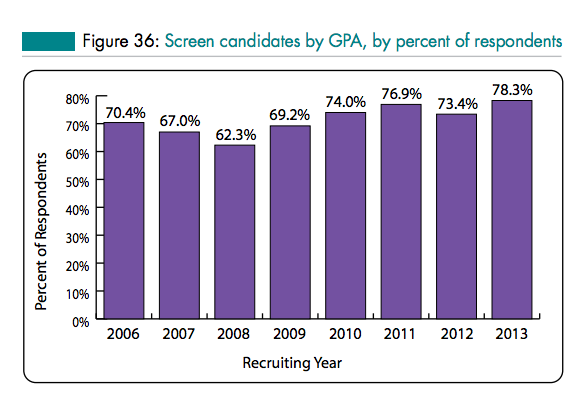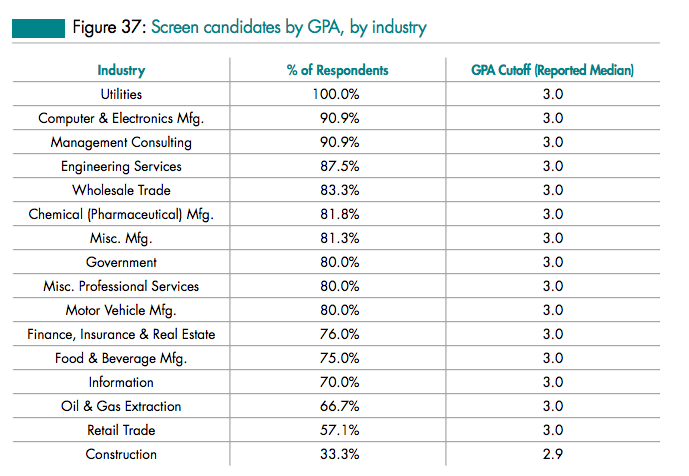It is not uncommon for students, having worked hard throughout high school in order to gain admission to the college of their dreams, to question the importance of their college grades. Some may think: I’ve gotten into a good college; isn’t it enough to do reasonably well? Does it really matter whether or not I have straight As? Didn’t George W. Bush have a C average at Yale? Things worked out OK for him, right?
The fact is, your grades in college do matter, and not just for those who intend to go on to professional school. But how much they matter will vary somewhat, depending on the employer and the industry. Keep in mind that GPA is one of many factors that employers use to evaluate prospective employees, and your activities, internships and work experiences are highly valued as well.
Large vs. Small Companies
The extent to which a company will weigh a prospective employee’s GPA depends on a number of factors. It is well-known that more competitive industries tend to care more about grades, especially when you’re talking about particularly selective jobs in finance and consulting. A lesser known factor, however, is size; generally, larger companies will expect to see your GPA on a resume, and will more commonly use that number to screen applicants. According to the National Association of Colleges and Employers’ Job Outlook 2013 survey, the percentage of employers who screen candidates by GPA reached an all-time high this past year: 78.3% of the survey’s 200 respondents. Notably, these respondents tended to be big companies, averaging about 7,500 people on the payroll.
Of these same respondents, 63.5 percent of respondents reported a “cut-off” (or minimum GPA required for consideration) of exactly 3.0, with just over 20 percent using a GPA cutoff greater than 3.0. The remaining 16 percent of respondents use GPA cutoffs less than 3.0, with some as low as 2.0. Notably, these minimum GPAs remain fairly consistent across industries.
Generally, however, smaller companies and start-ups place a lesser emphasis on GPA. Nevertheless, if your grades are good, you should say so. While these employers don’t necessarily expect to see a GPA on your resume, it doesn’t mean they don’t care at all. In a recent article in Forbes, Dean Iacovetti, director of recruiting at a Apprenda, a software company in Manhattan, stated that while he didn’t require applicants to report a GPA, he still takes notice of a strong one. “If there’s an individual graduating with a 3.5 from Cornell, that’s someone I’d like to see.”
The Role of Other Factors
If you’re concerned that your grades don’t quite measure up, however, don’t despair. While GPA can be a large factor in determining qualifications, it is still only one factor. There are a number of ways to make up for and explain slightly lower grades. For example, recruiters at many companies are familiar with the schools where they recruit; they understand that a B in a tough class at a competitive school may be a greater accomplishment than an A somewhere else. Additionally, if the GPA in your major is better than your overall average, you can list that number, or both.
Another recent survey of 704 employers by the Chronicle of Education found that, while grades are important, experience is even better; employers place more weight on real work experience, particularly internships and employment during school than academic credentials including GPA and college major. Approximately 50% of science and technology employers valued candidates more based on their experience, compared to 19% who valued candidates more based on academic merit. In media and communications, 48% valued prior experience more and 20% valued academic records more. As such, students can compensate for lower grades by emphasizing work experience, and highlighting successes.
For more guidance developing your career, contact Collegiate Gateway – we’re happy to help!


